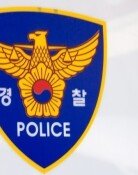Loss-making duty free shops
Loss-making duty free shops
Posted July. 13, 2017 07:17,
Updated July. 13, 2017 07:35
In the 1940s when airplane’s flying distance was short, flights linking the U.S. and Europe had to land for refueling half way through the journey. A popular landing site for those flights at the time was Shannon Airport in Ireland. Ireland created a new store where transit passengers that numbered half a million yearly did not have to pay taxes at both the stopover or the destination. It is Shannon Duty Free Ship, the world’s first duty free shop that opened in 1947. Korea’s first duty free shop opened at Gimpo Airport 15 years later.
Duty free shops are categorized into "duty free (exemption of tariffs)" stores and "tax free (exemption of general tax)" stores. The duty free shop is a store selling products at a price that deducts duty, consumption tax and excise tax in advance. In contrast, the tax free stop refunds taxes excluding tariffs to the buyer when the buyer departs from a country. As for the duty free shop, the Korea Customs Service fixes the number of such stores and issues licenses accordingly, but as for the tax free shops, the National Tax Service issues licenses to all applying stores as long as they meet the requirements. The intra-city duty free shops that have been referred to prosecution in a recent inspection by the Board of Audit and Inspection are duty free shops.
In 2015, South Korea’s duty free shop industry accounted for 14.4 percent of the global market, overwhelming the runner-up China (7.3 percent). Lotte Group has helped Korea’s duty free industry to take off. Lotte Duty Free Shop, which opened in 1980, displayed and sold products by brand category just like department stores. It was a time when all other duty free shops worldwide were selling products by product category. Lotte started housing Louis Vuitton in 1984, Hermes and Chanel in 1985 and 1986, respectively in its stores, ushering the "luxury brand era" of duty free shops.
Duty free shops were a big cash cow business in the past. They earned huge profits by banking on Chinese tourists, who would spend lavishly. But some companies jumped into the industry belatedly, unprepared, and suffered losses. Those companies acquired licenses as a result of the Korea Customs Service’s manipulation of their evaluation scores in 2015. As China’s boycott of South Korean products that followed the deployment of the THAAD anti-missile system in the South, which further aggravated their trouble, duty free shops have now become loss-making business rather than cash cow industry. Despite the fiasco, the government failed to forecast the future and issued additional four licenses to intra-city duty free shops last year. The government went so far as manipulating the industry on top of imposing regulations, but it might have ended up slaughtering the cash cows.
Headline News
- Med professors announce intention to leave hospitals starting Thursday
- Bridge honoring Sgt. Moon Jae-sik unveiled in Pennsylvania
- Chief of Staff Chung tells presidential secretaries to stay away from politics
- US FTC bans noncompete agreements
- N. Korea launches cyberattacks on S. Korea's defense companies







